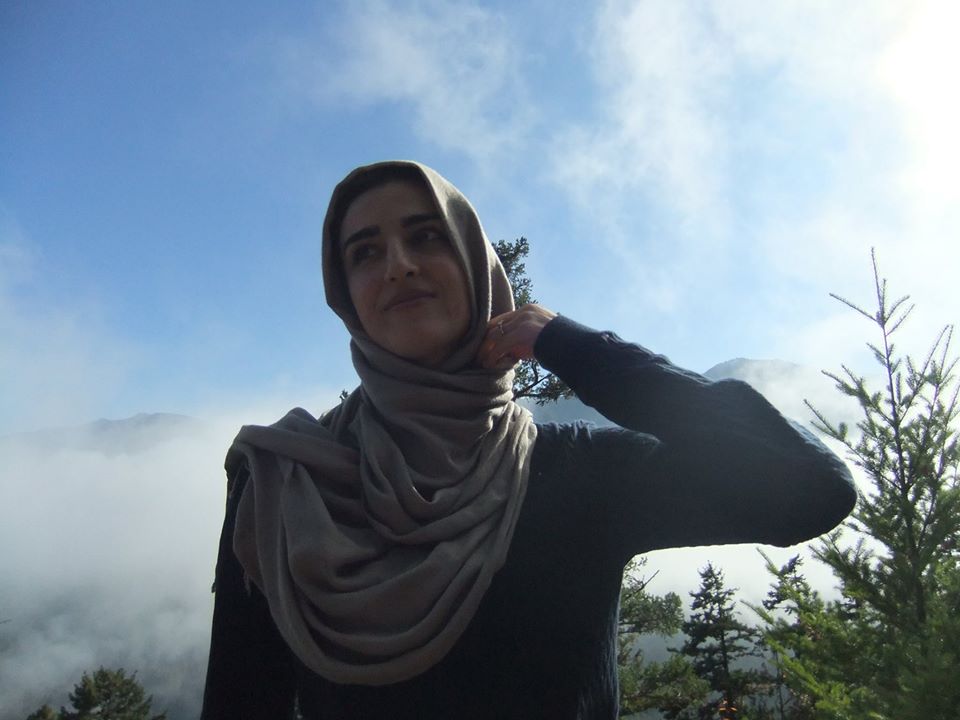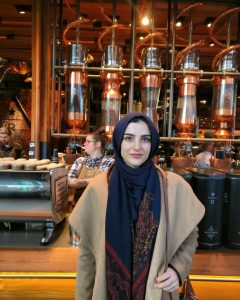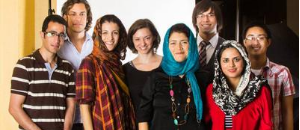
By Angie Mellor
The journey to completing a PhD is never an easy one, but for Goltune editor Mateen Rokhsefat, it was exceptionally challenging. Between navigating her course studies, research, moving away from campus and meeting her supervisor’s expectations, Rokhsefat also became a mother.
Beginning her PhD program in the department of Near and Middle Eastern Civilizations at the University of Toronto, in 2010, Rokhsefat completed the degree in 2020. “It was really difficult to start the PhD process while just becoming a mom. I had family help and my husband helped too, but he also started traveling extensively for work, and for many years I had to take care of our child a lot on my own,” she said.
In addition to motherhood and her husband’s work travels, Rokhsefat was also often isolated from her peers, professors, and resources. “As a graduate student, it’s very important to be on campus or near the university and with a young child and no family nearby, it was very difficult, to say the least.”
Rokhsefat remembers many days of commuting to campus with a toddler in tow. “I had to catch three or four trains to go back and forth to university from 6 am to 6 pm in rush hour mornings and evenings,” she said.
Much of Rokhsefat’s research was extremely labor intensive. Her dissertation focused on historicizing the changes and evolution of some key concepts and figures in Islam throughout time. Given Rokhsefat’s topic, she noted the difficulty of finding old primary sources written in Persian for her specific topic.
“Reading old Persian language texts is difficult even for native speakers, and I had to translate everything I wanted to use from Persian to English,” she said. “The translation of everything was really cumbersome, but just finding them was another story.”
Tips to prospective PhD students: research the field of study, and your faculty adviser carefully; find a program, and people who supports your interests and offer plenty of resources,’ Rokhsefat recommended.
Rokhsefat recalls that many of the first edition texts she needed were very rare. “These books were all in the Persian language and there were maybe ten to fifteen copies available in the whole world.”
Rokhsefat ended up traveling to Iran to research archives under very difficult political conditions. “Most students spend three to six months doing archival research, but I only had one a half because our son was staying with my husband who had to soon travel for work,” she said.
Even in Iran, access to the texts Rokhsefat needed wasn’t easy to come by. “At the library they give you three books at a time for a few hours. You can’t photocopy them or check them out. A lot of the information was secret. People were really sensitive to my topic…the material was outlawed, controversial and very few copies were available.”
 While some of those difficulties contributed to the length of her PhD program, Rokhsefat considers them contributions that shaped her transition to motherhood. “You feel guilty if you’re not one hundred percent paying enough attention to your child. I’m proud and happy of the way I did it, but it’s also very demoralizing because you feel that you’re not being the best mom you can be, or the best student your professor wants.”
While some of those difficulties contributed to the length of her PhD program, Rokhsefat considers them contributions that shaped her transition to motherhood. “You feel guilty if you’re not one hundred percent paying enough attention to your child. I’m proud and happy of the way I did it, but it’s also very demoralizing because you feel that you’re not being the best mom you can be, or the best student your professor wants.”
Some tips she offers to prospective PhD students include researching the field of study, institution, department, and faculty to find a program and director who are supportive of your interests and offer plenty of resources to students. “My advice is to demand resources, work for them, get them and fight for what you need. Go with your gut feeling and have the confidence to say yes to all the opportunities presented to you.”
Rokhsefat hopes to submit chapters from her dissertation to academic journals and hopes to eventually publish her dissertation as a book. Additionally, she hopes to work on a project drawing from her experiences of navigating motherhood during PhD studies. She hopes to provide advice and support for other women who become or are mothers working to complete their PhDs.
In the meantime, Rokhsefat has kept busy with creative projects such as producing the “Peacemindedly” podcast with Sara Jamshidi and exploring additional collaborations in the future. “Because I’ve been so dedicated to my academic work for so long, I’m looking forward to try other creative paths and career options.”
In addition to all the usual workload and challenges PhD students face, Rokhsefat added the life-changing event of motherhood to the mix. Rokhsefat has made many contributions in her academic and creative career impacting Middle Eastern and Islamic studies, all while raising a child, which provides her a unique prospective for her future projects. “My biggest triumph is that I was able to still complete my PhD and I didn’t quit,” she said. Goltune News is proud to have such a determined and talented woman as part of their team. Congratulations, Mateen!
We have a small favor to ask you. |
 |
Goltune is editorially independent, meaning we set our own agenda. Our agenda is to show that women from everywhere, including Muslim-majority nations, have the same aspirations, agency and tenacity as everyone else. No one edits our editor. No one steers our opinion. This is important as it enables us to stay true to our values.
Every contribution we receive from readers like you, big or small, goes directly into funding our journalism. Please support Goltune, large or small. Thank you.
Please click on this link to make your contribution. Or,
Send your contributions to our PayPal account: [email protected]






